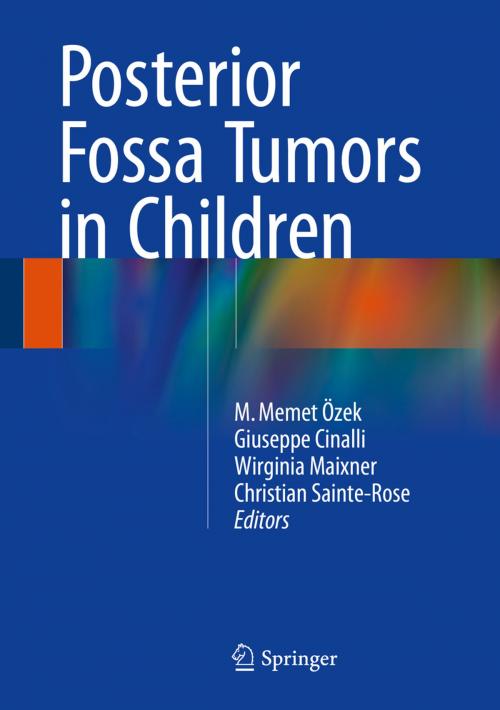Posterior Fossa Tumors in Children
Nonfiction, Health & Well Being, Medical, Surgery, Neurosurgery, Specialties, Pediatrics| Author: | ISBN: | 9783319112749 | |
| Publisher: | Springer International Publishing | Publication: | April 15, 2015 |
| Imprint: | Springer | Language: | English |
| Author: | |
| ISBN: | 9783319112749 |
| Publisher: | Springer International Publishing |
| Publication: | April 15, 2015 |
| Imprint: | Springer |
| Language: | English |
This book, written by experts from across the world, provides a comprehensive, up-to-date overview covering all aspects of posterior fossa neoplasms in pediatric patients, including medulloblastoma, ependymoma, cerebellar astrocytoma, atypical teratoid/rhabdoid tumor, chordoma, brain stem tumors, and rarer entities. For each tumor type, individual chapters are devoted to genetics, radiological evaluation using advanced imaging techniques, surgery, pathology, oncology, and radiation treatment. In addition, a separate section describes the various surgical approaches that may be adopted and offers guidance on the treatment of hydrocephalus and the role of intraoperative mapping and monitoring. Useful information is also provided on anatomy, clinical presentation, neurological evaluation, and molecular biology. The book closes by discussing in detail immediate postoperative care, the management of surgical complications, and longer-term rehabilitation and support. Posterior fossa tumors are the most common pediatric brain tumors but are often difficult to treat owing to their proximity to critical brain structures and their tendency to cause marked intracranial hypertension. Practitioners of all levels of experience will find Posterior Fossa Tumors in Children to be a richly illustrated, state of the art guide to the management of these tumors that will serve as an ideal reference in clinical practice.
This book, written by experts from across the world, provides a comprehensive, up-to-date overview covering all aspects of posterior fossa neoplasms in pediatric patients, including medulloblastoma, ependymoma, cerebellar astrocytoma, atypical teratoid/rhabdoid tumor, chordoma, brain stem tumors, and rarer entities. For each tumor type, individual chapters are devoted to genetics, radiological evaluation using advanced imaging techniques, surgery, pathology, oncology, and radiation treatment. In addition, a separate section describes the various surgical approaches that may be adopted and offers guidance on the treatment of hydrocephalus and the role of intraoperative mapping and monitoring. Useful information is also provided on anatomy, clinical presentation, neurological evaluation, and molecular biology. The book closes by discussing in detail immediate postoperative care, the management of surgical complications, and longer-term rehabilitation and support. Posterior fossa tumors are the most common pediatric brain tumors but are often difficult to treat owing to their proximity to critical brain structures and their tendency to cause marked intracranial hypertension. Practitioners of all levels of experience will find Posterior Fossa Tumors in Children to be a richly illustrated, state of the art guide to the management of these tumors that will serve as an ideal reference in clinical practice.















